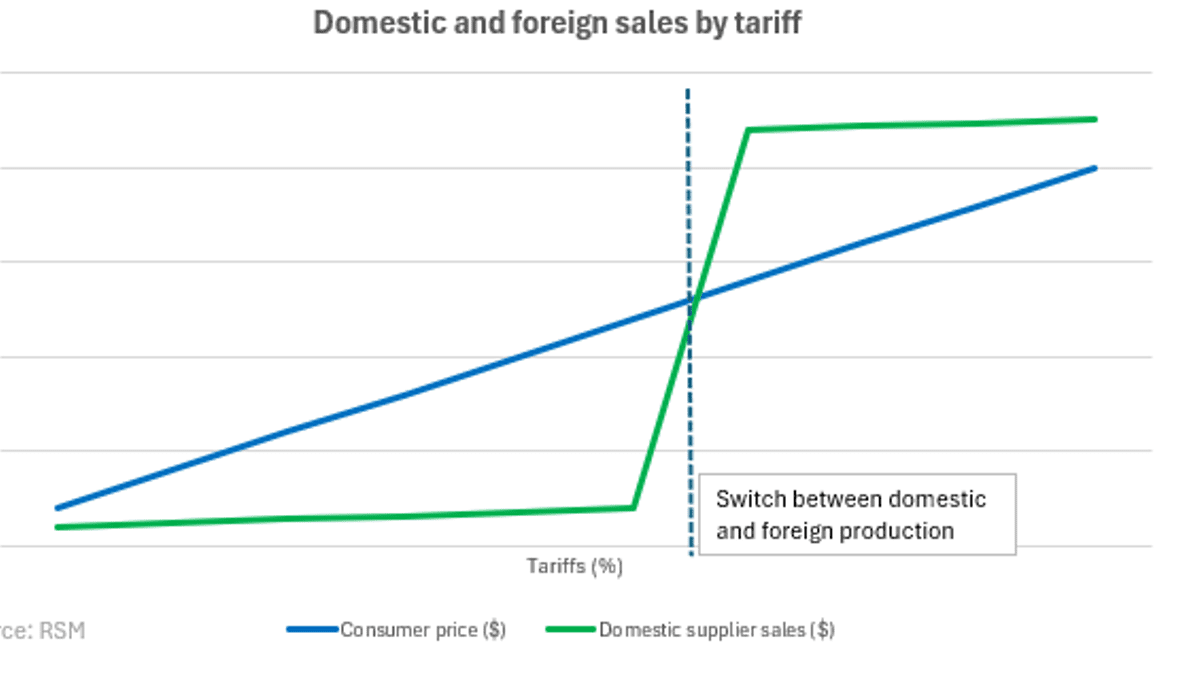
Are you relocating to Massachusetts from abroad?
If yes, there are several tax-related issues that high-net-worth (HNW) individuals should know. Fortunately, Stuart Taylor, EA, LGA Tax Principal, provides insight.
Tax-Planning Strategies for HNW Individuals
For HNW individuals, what are some tax-planning strategies they should consider in 2024 and 2025?
The best thing anyone can do now is to understand what we know is changing in 2025 and plan for that. Doing so will put you in a position to take advantage of current tax incentives regardless of the presidential election outcome. For example, the federal estate tax exemption is currently $13.6 million but could be impacted by the presidential results.
If you get to the end of 2025 and the exemption looks like it’s going to expire or get reduced dramatically, waiting until the end of 2025 could be a mistake because it might be too late to take full advantage of the exemption.
Tip: Taxes are all about planning. Plan to take advantage of the current laws and alleviate some of the pain points you may face if the laws change.
Tax Residency
Can you explain the process of determining Massachusetts tax residency for individuals relocating from another country and what implications that might have on global income?
Massachusetts is a domicile state, which means people with a green card or a visa who settle in the state will be fully taxed—federally and by state. In addition, the U.S. has a 10-day de minimis presence test, which means depending on the timing, number of days previously spent here, and activities you were doing, e.g., house hunting, work trips, visits to explore schools, etc., those days may count toward becoming a domiciled resident. If the country you are exiting from does not have a tax treaty with the U.S., you might run into additional tax challenges in the States.
So, if you are a U.S. citizen or green card holder, you must file taxes each year. Also, think about your transferrable financials, such as capital gains, pensions, income, etc., that could impact your tax situation. See the case study below.
Case Study
Melinda moved to Arizona from Canada. A year after she moved to the U.S., she sold an inherited Canadian property for a significant capital gain. She did not inform her advisor that she had the property nor planned to sell it. By keeping silent and waiting until after the move, Melinda did not qualify for any U.S. tax exclusions on her $1.2 million sale, resulting in a high tax bill.
To avoid that issue, we ask clients before moving to the States, “What are you bringing financially?” Divulging that information could impact their tax bill and save them thousands in the long run.
Tip: Address federal and state challenges before establishing residency in Massachusetts. Depending on the number of days you are trending toward, your residency date might be a lot earlier than you assumed, which could mitigate some of your tax exposure.
Double Taxation
How can individuals moving to Massachusetts from abroad navigate the complexities of double taxation?
International double taxation occurs when a taxpayer resides in one country and earns income in another, e.g., you still have a business that earns income in your country of origin. In this case, both countries may claim to tax the income, leading to double taxation.
However, there are mechanisms to prevent double taxation, such as tax treaties between countries, the Foreign Earned Income Exclusion (FEIE), the Foreign Tax Credit, etc.
Tip: Before moving, contemplate what business or income opportunities you might leave in your country of origin. If it generates income, you may be faced with paying taxes in both countries.
Reporting Requirements for Foreign Assets and Income
What are the reporting requirements for foreign assets and income for new residents of Massachusetts? What penalties can arise from failing to comply with those requirements?
Penalties start at $10,000 per instance and can go as high as $100,000 per instance. It’s crucial to work with a professional international tax preparer who understands which forms are required and includes them in your income tax return.
Tip: It is about proactively understanding your investments and business contributions and identifying your reporting requirements.
Ensuring Compliance
For individuals moving to Massachusetts who own businesses or have significant investments abroad, what are the key considerations and best practices for ensuring compliance with U.S. and international tax laws?
It is essential to understand the extent of U.S. exposure within your financial portfolio fully. For example, if you sold your home and all your belongings before moving to the U.S., you would need to know the compliance requirements and proactively plan accordingly.
Relocating to Massachusetts from abroad involves navigating a complex landscape of international and domestic tax considerations, such as:
- Understanding Massachusetts’ tax residency requirements,
- Addressing potential double taxation issues, and
- Ensuring compliance with foreign asset reporting to minimize tax liabilities.
For HNW individuals, proactive tax planning is crucial, especially with anticipated changes in federal tax laws.
Consulting with our tax professionals, who are well-versed in U.S. and international tax laws, is essential for a smooth transition. Proper planning and expert guidance can help mitigate risks and ensure you are well-prepared for your new financial landscape in Massachusetts. Contact Stuart Taylor, EA today to speak about your upcoming move.






